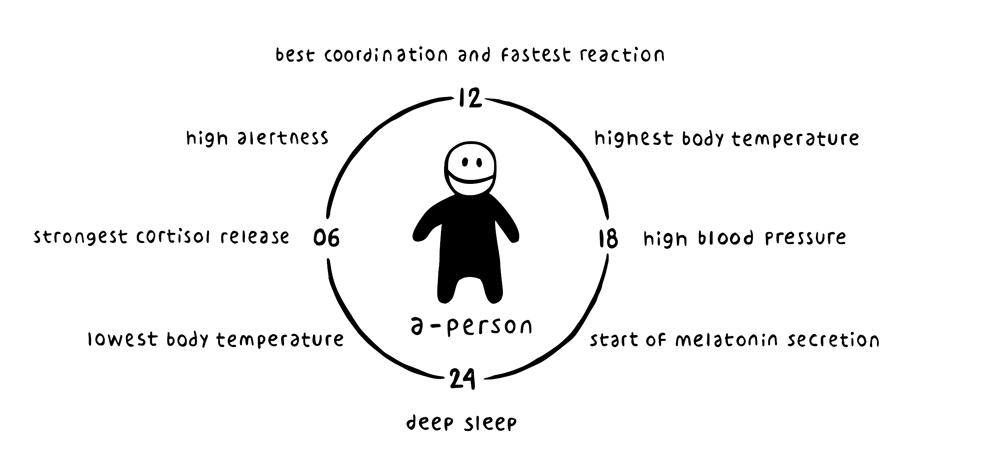
A-person
- Wakes up early and gets tired quickly in the evening
- Peaks mentally and physically early in the day
- Prefers a quiet evening
- Thrives on fixed working and sleeping times
- Get ready to start the day’s tasks as soon as you wake up
- Feels like the day is over by lunchtime
- Solves the most complicated, demanding or large tasks at the beginning of the day
- Prefers the same rhythm and patterns every day
- Gets up early on the weekend
You are born with a biological clock. It’s not something you choose.
The distribution of circadian rhythms, or chronotypes, spans from extreme A-person, early chronotype, to extreme B-person, late chronotype, similarly to how height varies from short to tall.
If you are an A-person (early chronotype) your natural rhythm is to go to bed early and wake up early every morning – as well as on the weekend. Even if you go to bed at 2 am, you’ll tend to wake up early the next day.

Let’s look at how SCN (the master clock in our brain) regulates the rhythm of all the basic processes in your body. The drawing illustrates a 24-hour rhythm in a moderate early chronotype (A-person). That is, one who goes to bed at 10 pm and gets up at 6 am (with a need for 8 hours of sleep.) The sleep hormone melatonin is secreted when we get tired and if you are a moderately early chronotype it will happen early in the evening. This means that you get tired and go to bed early. Human body temperature is lowest when we sleep. For the moderate early chronotype, the lowest body temperature occurs around 3 o’clock at night. When the body temperature is lower, the body does not need as much energy to keep going. The strongest cortisol release takes place around 6 o’clock in the morning. It is cortisol that increases mental clarity and alertness, and sharpens our senses.
You can test your chronotype at https://chronotype-self-test.info/ or https://www.bodyclock.health/
